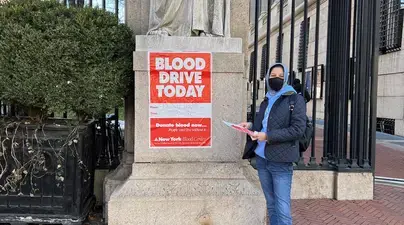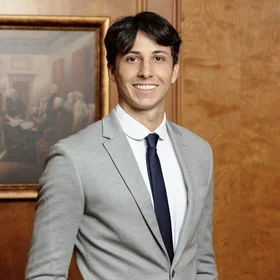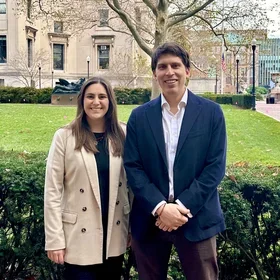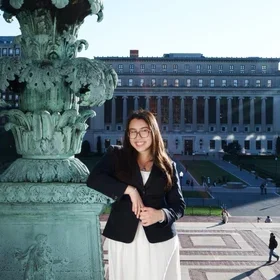Fatima Jawad Syed, an M.S. student in the Nonprofit Management program, says she values diversity not only because she is a Brown Muslim woman from Pakistan, but because she is, first and foremost, a human being. A self-described introvert, Fatima asserts that there is and should be a place for everyone where decisions are made. Earlier this term, she joined the Columbia SPS Diversity, Equity, Inclusion, and Accessibility, (DEIA) Committee as a student representative. Syed discusses how her unique perspective inspired her to join the committee, as well as the importance of diversity and inclusion in the nonprofit and development space.
What motivated you to nominate yourself for the SPS DEIA Committee?
I am an international student and a brown Muslim woman from Pakistan, but above all, I am human; which is to say, I feel, observe and process the world around me. I notice the gaps in our systems, the potential for improvement, and opportunities for growth. My professional and personal life revolve around service to others. I have prior experience working with and for marginalized communities, as well as taking leadership roles at all of the educational institutions I have attended. This includes Columbia University, where I serve on the executive board of the Nonprofit Management Student Association in addition to the SPS Diversity, Equity, Inclusion, and Accessibility (DEIA) Committee. Given my service-oriented experiences, I have developed an ability to truly listen to those around me and to show them compassion.
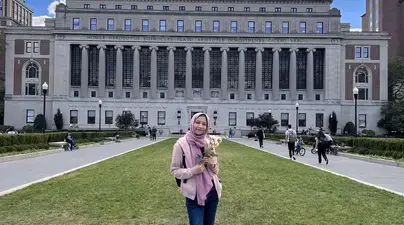
"Think about what can be done to make everyone feel safe and comfortable enough to contribute to the discussions and activities," Fatima advises fellow Columbia SPS community members.
All of these experiences motivated me to nominate myself for the SPS DEIA Committee. I believe that being a committee member allows me to turn compassion into meaningful action. I relay the experiences of my peers to the committee and try to make Columbia University a safe space for all. I am also happy to share my lived experiences in order to provide a point of reference when advocating for student accommodations. After all, we are all human beings and while each of us is unique, we collectively share many of the same challenges and concerns. By nature, I am a shy and introverted person — attributes that made me think twice before volunteering for the committee; however, I believe that these are also my strengths. My personality allows me to represent many of those in the student body who may not feel comfortable being at the front lines but nevertheless have important ideas that need to be heard and considered. Being part of the DEIA Committee is a responsibility that I am honored to take on and I have devoted myself entirely to its cause.
How do you see DEIA transforming your field?
For me, DEIA in the development sector means a move towards community-led projects. This would entail providing the opportunity and resources to underserved and/or marginalized communities to identify and voice their needs and to design and implement solutions accordingly. It will further allow organizations to question current power dynamics and make adjustments where necessary. It will encourage diversity in staff, ideas and approaches. It is a step towards understanding one another and creating a society where everyone is able to truly express themselves.
Fueled by altruism, this is a sector designed to fulfill the unmet needs of communities, and thus it is especially necessary to employ DEIA values, policies, and practices in all its facets. Effective DEIA policies and practices can strengthen the sector’s connection with the communities it serves as well as those who make the work possible. A focus on DEIA will help the sector truly understand the perspective of various stakeholders including constituents, employees, volunteers, donors, and leadership.
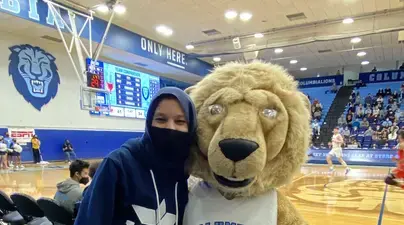
Caption: Fatima regularly attends student life events to get to know more of her fellow Columbians.
What’s one thing that any person can do to support diversity, equity, inclusion, and accessibility within the SPS community?
Listen to those around you. Pay attention to your surroundings. Question what is and why it is so. In conversations during class and among colleagues, notice who speaks and what they speak about. Notice who stays silent and consider why. Think about what can be done to make everyone feel safe and comfortable enough to contribute to the discussions and activities. Appreciate the facilities that you enjoy and question whether they are available to others as well. Realize the privilege you may have in big things and smaller areas. For example, the puddle you jump over on your way to campus may be a mere inconvenience for you but a hurdle for others. Recognize the power you have to eliminate these hurdles.
Educate yourself. Learn how to correctly pronounce the names of colleagues, and learn about other people’s cultures and traditions, as well as their needs. Self-reflect. Think about how you live life, the practices you uphold, and the values you sustain. Who do they serve and why?
Don’t be afraid to ask for help. Speak up for yourself and others if they aren’t able to. If you see something that can be improved, reach out to the relevant authorities. In a world that often seems too big and complicated, know that small acts of kindness go a long way. You have the power to bring change.
Supporting DEIA is a continuous process, and with the right intentions and correct approach, you can make a positive impact. I encourage my fellow Columbians to connect on LinkedIn and/or Instagram!
